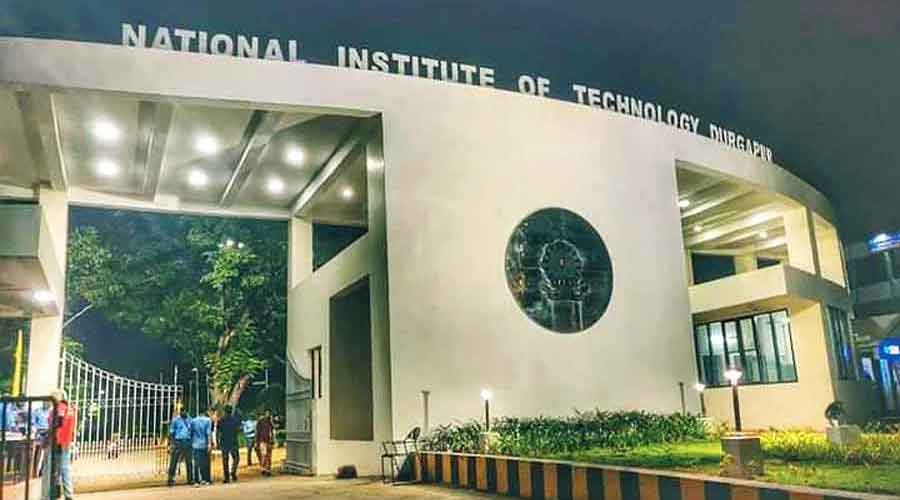Undergraduate students at NIT Durgapur who are being called to attend in-person classes have to state in a consent form that they “have no-objection to stay in a shared room in the hostel”.
Their parents have to give consent to this undertaking as well.
The NIT is calling students of all years, except the undergraduate first year, to the campus for in-person classes from January.
An NIT official said the consent was being sought because a student could not have a room to himself or herself in hostels.
The UGC guidelines on Covid safety in regard to reopening of hostels say: “Sharing of rooms may not be allowed in hostels.... There should be no crowding in hostel areas.... Hence, their numbers need to be limited appropriately to avoid crowding.”
A notice signed by the dean of students, Rajat Mahapatra, and dean of academics, Nirmal Baran Hui, says that in the consent form the students have to give the following undertaking: “Attend classes regularly in physical mode. Have no-objection to stay in a shared room in the hostel; wear masks during the class and in the hostels….”
Another official said it was not possible to build infrastructure on such a scale that students would stay in hostels without sharing rooms. This is especially true for BTech students, the largest block on the campus.
“We have single-room facilities for research scholars and postgraduate students. But this cannot be done for BTech students,” he said.
NIT Durgapur has around 3,700 BTech students. There are 14 hostels on the campus, four of which are for girl students.
One of the hostels has come up recently and will be inaugurated once first-year students arrive.
An NIT teacher said the number of students is increasing with the introduction of a quota for the economically weaker section among upper castes at central education institutions like the IITs and NITs from the 2019-20 academic year.
“The first-year students are not being called because admission is going on. The undergraduate students of remaining years are being called because academic progress of students on the other side of the digital divide, those living in remote areas, are being affected,” the teacher said.
The institute had in January appealed to its alumni for aid to bridge the divide, which it said was “threatening the future of many students”.
“Besides, engineering education requires attending practicals. This cannot be done through online classes,” said dean Hui.
The Bengal government has allowed resumption of in-person classes in colleges and universities from mid-November.
What if a section of students still wants to stay away from the campus? Will they be allowed to attend online classes?
Dean Mahapatra, said: “Let’s see how many students come to the campus. Then we will make a decision.”
